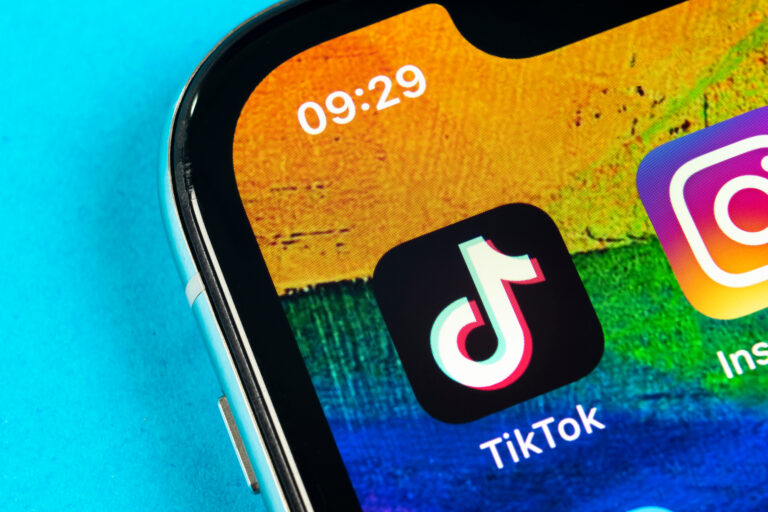SEO
TikTok Updated Community Guidelines To Include AI Content

TikTok has updated its Community Guidelines, which will go into effect on April 21, 2023.
The updated guidelines introduce TikTok’s Community Principles, which guide content moderation to uphold human rights and international legal frameworks.
TikTok worked with over 100 organizations globally to strengthen its rules to address new threats and reduce potential user harm.
Key changes to Community Guidelines apply to synthetic media, tribes, and civic and election integrity.
AI-Generated Content
TikTok defines “synthetic media” as content created or modified by AI. While AI and related technologies allow creators to express themselves in many new ways, they can also blur the line between fact and fiction for viewers.
Creators must label synthetic or altered media as such to mitigate the potential risks of spreading misinformation.
To reduce potential harm, synthetic media featuring real private individuals is prohibited. Private individuals include anyone under 18 and adults who are not public figures. The use of public figures over 18 – government officials, politicians, business leaders, and celebrities – is permitted, but with restrictions.
Creators must not use synthetic media to violate policies against hate speech, sexual exploitation, and severe harassment. They must also clearly disclose synthetic media and manipulated content that depict realistic scenes with fake people, places, or events.
Public figures cannot be used in synthetic audio or video for political or commercial endorsements to mislead users about financial or political issues.
You can, however, use synthetic media in artistic and educational content.
Protection Of Tribes
TikTok policies already include rules meant to protect people and groups with specific attributes from hateful behavior, hate speech, and hateful ideologies.
With new guidelines, the platform added Tribes to the list of protected attributes, including ethnicity, gender, race, religion, and sexual orientation.
While TikTok allows critical content on public figures, as defined above, it prohibits language that harasses, humiliates, threatens, or doxxes everyone.
Users can consult resources and tools provided by TikTok to identify bullying behavior and configure their settings to prevent it from affecting them further.
Civil And Election Integrity
Noting that elections are essential to community dialogue and upholding societal values, TikTok recently emphasized its alleged efforts to encourage topical discussions while maintaining unity.
To achieve this goal, paid political promotion, advertising, and fundraising by politicians or parties are prohibited. This policy applies to traditional ads and compensated creator content.
TikTok claims to support informed civic idea exchanges to promote constructive conversations without allowing misinformation about voting processes and election outcomes. Content that includes unverified claims about election results will not be eligible to appear in the For You Feed.
Before these changes go into effect next month, moderators will receive additional training on enforcing them effectively.
Will Recent Changes Prevent More TikTok Bans?
TikTok’s refreshed Community Guidelines and explanation of Community Principles appear to attempt greater transparency and foster a safe, inclusive, and authentic environment for all users.
TikTok plans to continue investing in safety measures to encourage creativity and connection within its global community of one billion users globally.
TikTok’s latest changes to improve transparency, reduce harm, and provide higher-quality content for users may be part of efforts to prevent the app from being banned in the U.S.
This week, the House Energy and Commerce Committee will hold a full committee hearing with TikTok CEO Shou Chew on how congress can protect the data privacy of U.S. users and children from online harm.
Organizations like the Tech Oversight Project have also expressed concerns about risks that big tech companies like Amazon, Apple, Google, and Meta pose.
Featured Image: BigTunaOnline/Shutterstock



![How AEO Will Impact Your Business's Google Visibility in 2026 Why Your Small Business’s Google Visibility in 2026 Depends on AEO [Webinar]](https://articles.entireweb.com/wp-content/uploads/2026/01/How-AEO-Will-Impact-Your-Businesss-Google-Visibility-in-2026-400x240.png)
![How AEO Will Impact Your Business's Google Visibility in 2026 Why Your Small Business’s Google Visibility in 2026 Depends on AEO [Webinar]](https://articles.entireweb.com/wp-content/uploads/2026/01/How-AEO-Will-Impact-Your-Businesss-Google-Visibility-in-2026-80x80.png)













